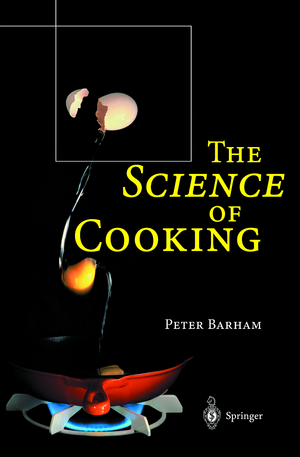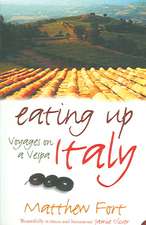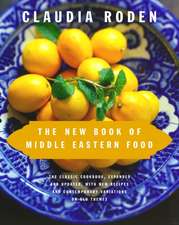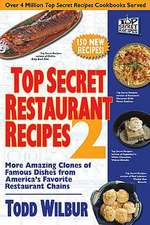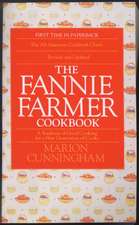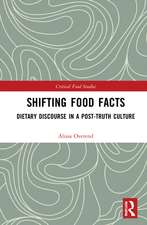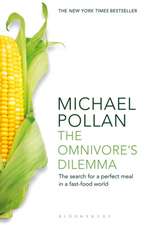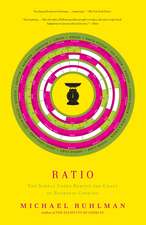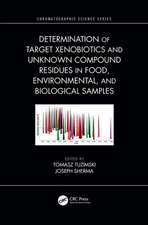The Science of Cooking
Autor Peter Barhamen Limba Engleză Hardback – 4 oct 2000
Strong praise from the reviewers -
"Will be stimulating for amateur cooks with an interest in following recipes and understanding how they work. They will find anecdotes and, sprinkled throughout the book, scientific points of information... The book is a pleasant read and is an invitation to become better acquainted with the science of cooking." - NATURE
"This year, at last, we have a book which shows how a practical understanding of physics and chemistry can improve culinary performance… [Barham] first explains, in a lucid non-textbooky way, the principles behind taste, flavour and the main methods of food preparation, and then gives fool-proof basic recipes for dishes from roast leg of lab to chocolate soufflé." - FINANCIAL TIMES WEEKEND
"This book is full of interesting and relevant facts that clarify the techniques of cooking that lead to the texture, taste and aroma of good cuisine. As a physicist the author introduces the importance of models in preparing food, and their modification as a result of testing (tasting)."- THE PHYSICIST
"Focuses quite specifically on the physics and food chemistry of practical domestic cooking in terms of real recipes... Each chapter starts with an overview of the scientific issues relevant to that food group, e.g. toughness of meat, thickening of sauces, collapse of sponge cakes and soufflés. This is followed by actual recipes, with the purpose behind each ingredient and technique explained, and each recipe followed by a table describing some common problems, causes and solutions. Each chapter then ends with suggested experiments to illustrate some of the scientific principles exploited in the chapter." - FOOD & DRINK NEWSLETTER
| Toate formatele și edițiile | Preț | Express |
|---|---|---|
| Paperback (1) | 451.09 lei 6-8 săpt. | |
| Springer Berlin, Heidelberg – 5 oct 2012 | 451.09 lei 6-8 săpt. | |
| Hardback (1) | 559.23 lei 6-8 săpt. | +25.68 lei 7-13 zile |
| Springer Berlin, Heidelberg – 4 oct 2000 | 559.23 lei 6-8 săpt. | +25.68 lei 7-13 zile |
Preț: 559.23 lei
Preț vechi: 657.92 lei
-15% Nou
98.96€ • 115.40$ • 86.89£
Carte tipărită la comandă
Livrare economică 15-29 ianuarie 26
Livrare express 11-17 decembrie pentru 35.67 lei
Specificații
ISBN-10: 3540674667
Pagini: 258
Ilustrații: VII, 244 p.
Dimensiuni: 155 x 235 x 25 mm
Greutate: 0.51 kg
Ediția:2001
Editura: Springer Berlin, Heidelberg
Colecția Springer
Locul publicării:Berlin, Heidelberg, Germany
Public țintă
Professional/practitionerCuprins
1 Introduction.- 2 Sensuous Molecules — Molecular Gastronomy.- 3 Taste and Flavour.- 4 Heating and Eating — Physical Gastronomy.- 5 Cooking methods and utensils.- 6 Meat and Poultry.- 7 Fish.- 8 Breads.- 9 Sauces.- 10 Sponge Cakes.- 11 Pastry.- 12 Soufflés.- 13 Cooking with Chocolate.- Weights and Measurements.- Glossary of Terms.
Recenzii
“The Science of Cooking is organized into two distinct sections, with an introduction and ancillary material. … The helpful Glossary provides basic definitions of chemical terms that many cooks may not have encountered. … ‘Foodies’, chemists who are interested in food, and serious cooks will enjoy the spirit of this book.” (Cheryl Baldwin Frech, Journal of Chemical Education, Vol. 81 (4), April, 2004)
"This year, at last, we have a book which shows how a practical understanding of physics and chemistry can improve culinary performance… [Barham] first explains, in a lucid non-textbooky way, the principles behind taste, flavour and the main methods of food preparation, and then gives fool-proof basic recipes for dishes from roast leg of lab to chocolate soufflé."
- FINANCIAL TIMES WEEKEND
"This book is full of interesting and relevant facts that clarify the techniques of cooking that lead to the texture, taste and aroma of good cuisine. As a physicist the author introduces the importance of models in preparing food, and their modification as a result of testing (tasting)."
-THE PHYSICIST
"Focuses quite specifically on the physics and food chemistry of practical domestic cooking in terms of real recipes. Industrial food technologists and process engineers will not find design equations or process flowsheets. Instead they, and those with more immediate home cooking interests, will find a clear, fascinating, informative and serviceable description of the scientific phenomena occurring during domestic cooking, and how to exploit an understanding thereof to achieve results consistently, adapt recipes confidently and adeptly rescue catastrophes. Each chapter starts with an overview of the scientific issues relevant to that food group, e.g. toughness of meat, thickening of sauces, collapse of sponge cakes and soufflés. This is followed by actual recipes, with the purpose behind each ingredient and technique explained, and each recipe followed by a table describing some common problems, causes and solutions. Each chapter then ends with suggested experiments to illustrate some of the scientific principles exploited in the chapter."
-FOOD & DRINK NEWSLETTER
"Will be stimulating for amateur cooks with an interest in following recipes and understanding how they work. They will find anecdotes and, sprinkled throughout the book, scientific points of information... The book is a pleasant read and is an invitation to become better acquainted with the science of cooking."
-NATURE
"You do not have to be a chemist or a physicist to cook a meal, any more than you need a qualification in engineering to drive a car; but in both cases, a little technical knowledge can help when things go wrong. That is the reasoning behind this odd volume that combines an explanation of the scientific principles of cooking with a down-to-earth guide to kitchen utensils, ... some experiments to try at home, and a random collection of around 40 recipes."
-THE ECONOMIST
"I believe that cooking is a bit like this: it is natural ability, not scientific knowledge that makes a good cook. Not withstanding, as physicists who are always asking "why is it so?," this book is full of interesting and relevant facts that clarify the techniques of cooking that lead to the texture, taste and aroma of good cuisine. As a physicist the author introduces the importance of models in preparing food, and their modification as a result of testing (tasting)"
- THE PHYSICIST
"…At last, we have a book which shows how a practical understanding of physics and chemistry can improve culinary performance … [Barham] first explains, in a lucid non-textbooky way, the principles behind taste, flavour and the main methods of food preparation, and then gives fool-proof basic recipes for dishes from roast leg of lab to chocolate soufflé."
–Financial Times Weekend
"Will be stimulating for amateur cooks with an interest in following recipes and understanding how they work. They will find anecdotes and, sprinkled throughout the book, scientific points of information...The book is a pleasant read and is an invitation to become better acquainted with the science of cooking."
–Nature
Caracteristici
Descriere
A kitchen is no different from most science laboratories and cookery may properly be regarded as an experimental science. Food preparation and cookery involve many processes which are well described by the physical sciences. Understanding the chemistry and physics of cooking should lead to improvements in performance in the kitchen. For those of us who wish to know why certain recipes work and perhaps more importantly why others fail, appreciating the underlying physical processes will inevitably help in unravelling the mysteries of the "art" of good cooking.
Strong praise from the reviewers -
"Will be stimulating for amateur cooks with an interest in following recipes and understanding how they work. They will find anecdotes and, sprinkled throughout the book, scientific points of information... The book is a pleasant read and is an invitation to become better acquainted with the science of cooking." - NATURE
"This year, at last, we have a book which shows how a practical understanding of physics and chemistry can improve culinary performance… [Barham] first explains, in a lucid non-textbooky way, the principles behind taste, flavour and the main methods of food preparation, and then gives fool-proof basic recipes for dishes from roast leg of lab to chocolate soufflé." - FINANCIAL TIMES WEEKEND
"This book is full of interesting and relevant facts that clarify the techniques of cooking that lead to the texture, taste and aroma of good cuisine. As a physicist the author introduces the importance of models in preparing food, and their modification as a result of testing (tasting)."- THE PHYSICIST
"Focuses quite specifically on the physics and food chemistry of practical domestic cooking in terms of real recipes... Each chapter starts with an overview of the scientific issues relevant to that food group, e.g. toughness of meat, thickening of sauces, collapse of sponge cakes and soufflés. This is followed by actual recipes, with the purpose behind each ingredient and technique explained, and each recipe followed by a table describing some common problems, causes and solutions. Each chapter then ends with suggested experiments to illustrate some of the scientific principles exploited in the chapter." - FOOD & DRINK NEWSLETTER
